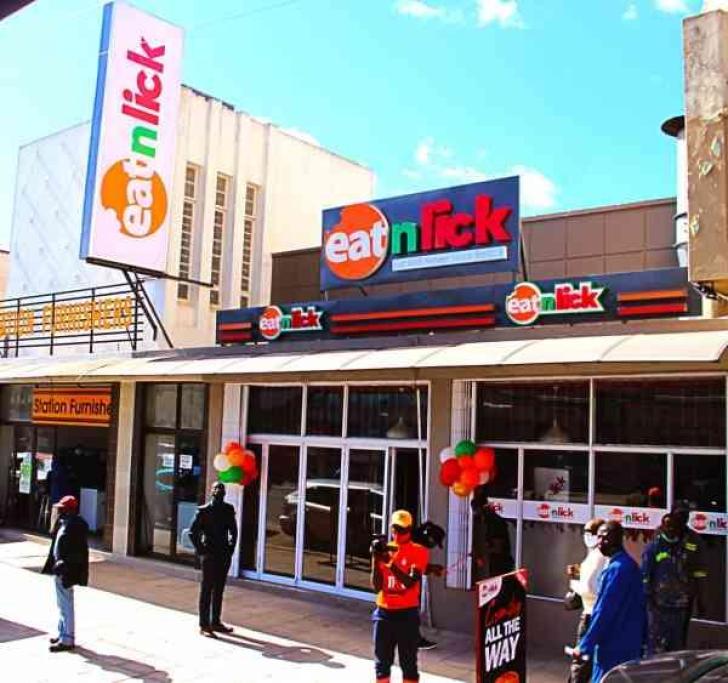News / National
Eat n Lick hits troubled times
09 May 2025 at 16:09hrs | Views

Popular fast-food chain Eat n Lick is facing internal turmoil amid rising worker dissatisfaction over unpaid salaries and poor welfare conditions, raising questions over the company's aggressive expansion strategy.
Disgruntled employees allege that the company has fallen behind on salary payments and allowances, creating a toxic working environment that is now affecting service delivery and product quality.
"Morale at Eat n Lick is at its lowest as workers have not been paid their salaries and allowances," said one employee who requested anonymity. "This has affected our products because workers are not happy."
Efforts to engage management over the outstanding payments have reportedly yielded no results, further compounding frustration among staff.
Eat n Lick owner David Musabayana, however, downplayed the situation, admitting only to minor delays in salary processing.
"Thanks for reaching out. Firstly, it's not true that we have gone for months without paying salaries, but, of course, we are a bit behind," Musabayana told reporters.
He dismissed claims that the government, which allegedly owes the company funds, was the major cause of the delay, although he acknowledged some pending payments.
"It's neither true that the government is our biggest debtor nor is it the cause of us lagging behind on processing salaries. To us, these are quite normal struggles in the economy which we address by revising our internal management strategies," he added.
Founded in 2014 by Tsitsi and David Musabayana, Eat n Lick has grown into one of Zimbabwe's prominent fast-food brands, with branches in major towns including Harare, Mutare, Chegutu, Rusape, Chinhoyi, Karoi, Kadoma, Kwekwe, and Chivhu.
Despite the internal challenges, the company has continued expanding, opening its 23rd branch at Makoni Shopping Centre in Chitungwiza in December 2023.
Management insists the expansion is part of a broader strategy to increase the brand's footprint across Zimbabwe and eventually into the Southern African region.
However, workers and observers say the fast-paced growth appears to be coming at the expense of employee welfare, threatening the brand's image and long-term sustainability.
Disgruntled employees allege that the company has fallen behind on salary payments and allowances, creating a toxic working environment that is now affecting service delivery and product quality.
"Morale at Eat n Lick is at its lowest as workers have not been paid their salaries and allowances," said one employee who requested anonymity. "This has affected our products because workers are not happy."
Efforts to engage management over the outstanding payments have reportedly yielded no results, further compounding frustration among staff.
Eat n Lick owner David Musabayana, however, downplayed the situation, admitting only to minor delays in salary processing.
"Thanks for reaching out. Firstly, it's not true that we have gone for months without paying salaries, but, of course, we are a bit behind," Musabayana told reporters.
He dismissed claims that the government, which allegedly owes the company funds, was the major cause of the delay, although he acknowledged some pending payments.
"It's neither true that the government is our biggest debtor nor is it the cause of us lagging behind on processing salaries. To us, these are quite normal struggles in the economy which we address by revising our internal management strategies," he added.
Founded in 2014 by Tsitsi and David Musabayana, Eat n Lick has grown into one of Zimbabwe's prominent fast-food brands, with branches in major towns including Harare, Mutare, Chegutu, Rusape, Chinhoyi, Karoi, Kadoma, Kwekwe, and Chivhu.
Despite the internal challenges, the company has continued expanding, opening its 23rd branch at Makoni Shopping Centre in Chitungwiza in December 2023.
Management insists the expansion is part of a broader strategy to increase the brand's footprint across Zimbabwe and eventually into the Southern African region.
However, workers and observers say the fast-paced growth appears to be coming at the expense of employee welfare, threatening the brand's image and long-term sustainability.
Source - newsday


















